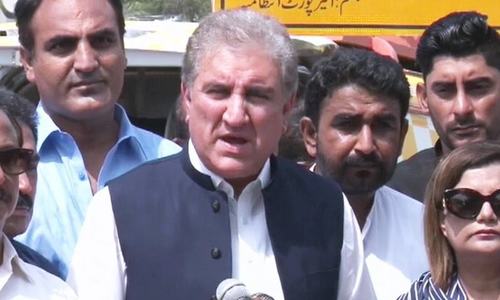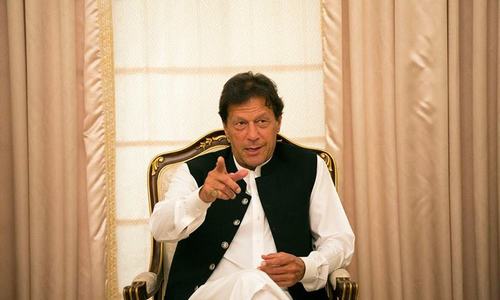ISLAMABAD: Minister for Human Rights Dr Shireen Mazari briefed the Senate Committee on Human Rights on Thursday about human rights violations committed by Indian forces in India-held Kashmir.
Dr Mazari told senators that India was climbing the escalation ladder, adding: “We need to tell the world vociferously that all Indian deployments are focused against Pakistan. Their forward bases in times of war are now regular bases. Seven of its nine commands are configured against Pakistan; 81pc of India’s air force bases and seven missile groups are configured against Pakistan.”
She added that Pakistan had made it clear that it did not want war but must draw the world’s attention to Indian aggression.
Displeased by absence of foreign secretary, chair demands another briefing at next meeting
Dr Mazari claimed India had continued low intensity conflict in the shape of acts of terror inside Pakistan.
“Although it failed, Balakot was a surgical strike. They have used cluster bombs almost every day across the Line of Control targeting civilians,” she said.
The committee discussed the lockdown in India-held Kashmir, which has entered its second month, a media blackout since Aug 5 as well as ban on freedom of religious expression.
The government intends to ask for United Nations forces to be deployed along the Pakistan side of the LoC as a buffer against Indian action.
Dr Mazari told the committee that India moved further by taking action on Article 370 of the Indian constitution that safeguarded Kashmir’s special status and preserved it a disputed territory.
“Pakistan has not pushed the point that India had itself taken the Kashmir dispute to the UN Security Council, which means that India recognises that Kashmir is a disputed territory between the two countries. This makes null and void India’s stance that it is an internal matter as India recognises it as an international concern,” she said.
She also said that by altering the status of an occupied territory, which is prohibited by international law, India has effectively committed a war crime.
Dr Mazari said the ministry had reached out to Unicef and 18 other UN human rights special procedure mandate holders to highlight atrocities committed in India-held Kashmir.
“We also approached the Pope to speak on violations of religious freedom in Kashmir. We need to engage the Pope, whose messages are heard world over, which eventually influences UN General Assembly members,” she said.
She also suggested that the Ministry of Foreign Affairs approach the UN office for the prevention of genocide, arguing that India has violated six out of the eight conditions of this office and Pakistan should draw its attention towards an impending genocide in Kashmir.
Dividing human rights violations into separate categories, Dr Mazari said that the Indian Cultural Forum held a fact-finding mission between Aug 9 and Aug 13 that highlighted serious food and medicine shortages, along with other basic necessities.
“The Indian Cultural Forum also highlighted specific targeting of civilians with pellet guns and [that] victims of excesses by Indian occupation forces have been children,” she said.
She said gender-based violence is also used as a weapon of war, recalling the mass rape of 30 Kashmiri women by Indian forces in 1991. She said a Human Rights Council report highlights rape and other serious acts of sexual violence by Indian officials.
Committee members expressed displeasure that the foreign affairs secretary did not attend the meeting to brief senators on the Kashmir issue.
The committee asked about the Ministry of Foreign Affairs inaction over the deployment of thousands of troops in India-held Kashmir, the evacuation of tourists and news articles that India would likely revoke the status of Jammu and Kashmir while warning of bloodshed in the region.
“There are so many questions over the performance of the Foreign Office. Yet the top officials from the Foreign Office miss an opportunity to highlight the case of Pakistan to the world. We see the lack of seriousness from the start on the issue of Kashmir,” committee chair Senator Mustafa Nawaz Khokhar said.
Denying officials from the foreign affairs ministry a chance to speak, Senator Khokhar demanded a briefing from the foreign affairs secretary at the next meeting.
Published in Dawn, September 13th, 2019
















































